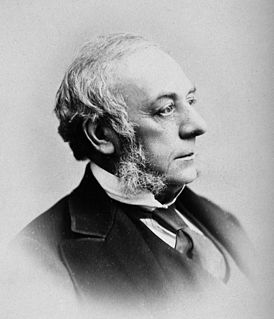A Quote by Vilayanur S. Ramachandran
Yet as human beings we have to accept-with humility-that the question of ultimate origins will always remain with us, no matter how deeply we understand the brain and the cosmos that it creates.
Related Quotes
There is no limit to suffering human beings have been willing to inflict on others, no matter how innocent, no matter how young, and no matter how old. This fact must lead all reasonable human beings, that is, all human beings who take evidence seriously, to draw only one possible conclusion: Human nature is not basically good.
I have increasingly become conversant with Pythagoras' and Goethe's idea of a primordial music, not perceptible to the sensuous ear, but sounding and soaring throughout the cosmos. Tracing it to such exalted origins, I begin to understand more deeply the essence of our art and its elemental power over the human soul. Man, being a creature of Nature and subject to the cosmic influences that inform all earthly beings, must needs have been under the sway of that music from his earliest days; his organism reverberated with its vibrations and received it's rhythmic impulses.
We may think it humility not to realize that the Lord is bestowing gifts upon us. Let us understand very, very clearly, how this matter stands. God gives us these gifts for no merit of ours. Let us be grateful to His Majesty for them, for, unless we recognize that we are receiving them, we shall not be aroused to love Him. And it is a most certain thing that, if we remember all the time that we are poor, the richer we find ourselves, the greater will be the profit that comes to us and the more genuine our humility.
Yes, the natural sciences are telling us a great deal about human origins, the origins of our species the origins of our minds; we're on our way to explaining a large part of it. I'll accept an answer provided only by such means as obtaining and exploring, analyzing and arguing over the evidence - not because of a scribe's myopic view of the subject written 500 years before the birth of Christ!
There cannot always be fresh fields of conquest by the knife; there must be portions of the human frame that will ever remain sacred from its intrusions, at least in the surgeon's hands. That we have already, if not quite, reached these final limits, there can be little question. The abdomen, the chest, and the brain will be forever shut from the intrusion of the wise and humane surgeon.
But in the end, science does not provide the answers most of us require. Its story of our origins and of our end is, to say the least, unsatisfactory. To the question, "How did it all begin?", science answers, "Probably by an accident." To the question, "How will it all end?", science answers, "Probably by an accident." And to many people, the accidental life is not worth living. Moreover, the science-god has no answer to the question, "Why are we here?" and, to the question, "What moral instructions do you give us?", the science-god maintains silence.
The aim of human life is to know thyself. Think for yourself. Question authority. Think with your friends. Create, create new realities. Philosophy is a team sport. Philosophy is the ultimate, the ultimate aphrodisiac pleasure. Learning how to operate your brain, learning how to operate your mind, learning how to redesign chaos
It's easy to sell good news like this, and the authors confidently rely on classic fallacious arguments. They argue by declaration, which is what makes the books so amusing. In matter-of-fact, authoritative tones, the authors tell us how plants and human beings exchange energy - or they describe what angels look like, whether or how they're sexed, how they communicate with human beings, and how they differ from ghosts. Readers might be expected to wonder, How do they know?
If we do find ET, we will at least have something in common with them. They may live on planet Zog and have seven tentacles, but they will be made of the same kinds of atoms as us. If they have eyes, they will gaze out on the same cosmos as we do. They will, like us, trace their origins back to a 'Big Bang' 13.8 billion years ago.
For optimists, human life never needs justification, no matter how much hurt piles up, because they can always tell themselves that things will get better. For pessimists, there is no amount of happiness—should such a thing as happiness even obtain for human beings except as a misconception—that can compensate us for life’s hurt.
Peace or harmony between the sexes and individuals does not necessarily depend on a superficial equalization of human beings; nor does it call for the elimination of individual traits and peculiarities. The problem that confronts us today, and which the nearest future is to solve, is how to be one's self and yet in oneness with others, to feel deeply with all human beings and still retain one's own characteristic qualities.



































